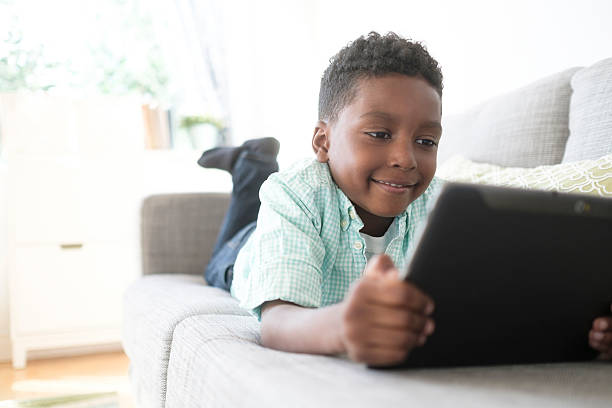A new study has found that longer screen time for infants at age 1 is linked to developmental delays in communication and problem-solving at ages 2 and 4.
According to a study published on August 21 in the journal JAMA Pediatrics, limiting screen time in infants and young children can support their development. The study analyzed 7,097 children and their parents, in 50 obstetric clinics and hospitals in Japan between 2013 and 2017.
The parents reported how much screen time their 1-year-old child was allowed on a “typical” day, including TV, DVDs, video games, mobile phones, and tablets. Later, when their child was 2 or 4, parents responded to a questionnaire that assessed the child’s development in communication, gross motor, fine motor, problem-solving, and personal and social skills.
By age 2, those who spent four or more hours per day with screens were almost two times more likely to experience developmental delays in communication and problem-solving skills. Those who spent 4 or more hours per day with screens were almost five times more likely to have communication delays and almost three times more likely to have problem-solving delays by age 2.
In addition, those with 4 or more hours per day of screen time were twice as likely to have delays in fine motor skills and personal and social skills at age 2. By age 4, the increased risk of delays remained only for communication and problem-solving skills.
According to Dr. Christina Johns, pediatric emergency doctor, and senior medical advisor at PM Pediatric Care, “This research adds to the evidence that increased screen time [in infants and young children] contributes to developmental delays in areas such as communication skills, problem-solving skills, and social skills.”
Factors other than screen time can also affect development, such as genetics, negative experiences like abuse or neglect, and socioeconomic factors.
One limitation of the study is that researchers didn’t have details on what type of screen time children were exposed to. In addition, they didn’t have data on whether a parent was watching the content with the child. Some research suggests that not all types of screen time have the same effect on a child’s development.
However, one study on children under age 12 found that screen time spent on educational content was linked to improved language skills, compared to other types of screen use. Parents viewing the content with their children also had a beneficial effect on language skills.



